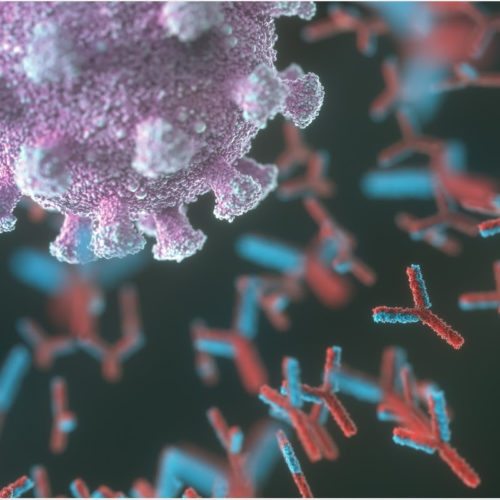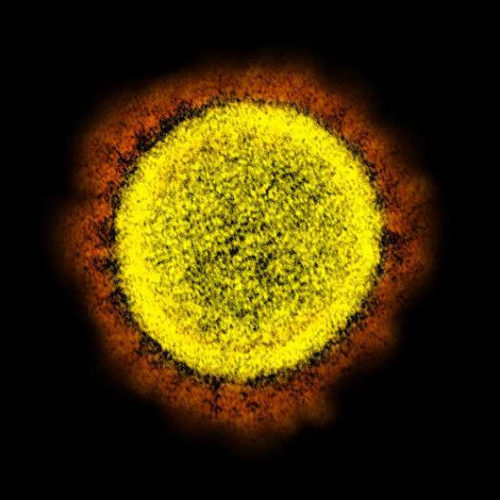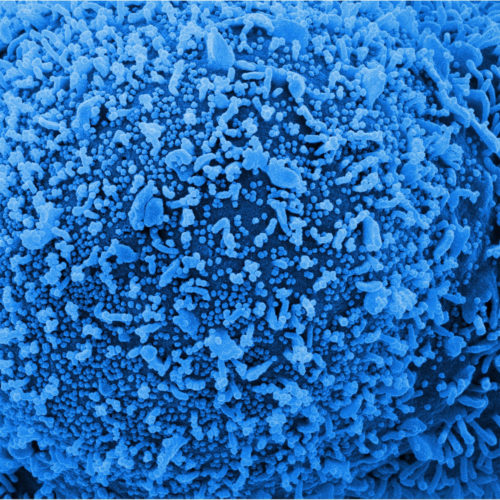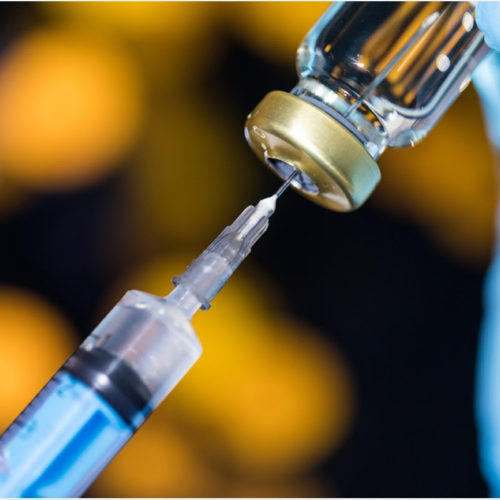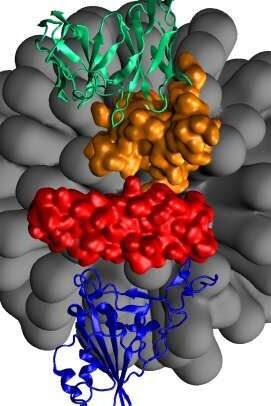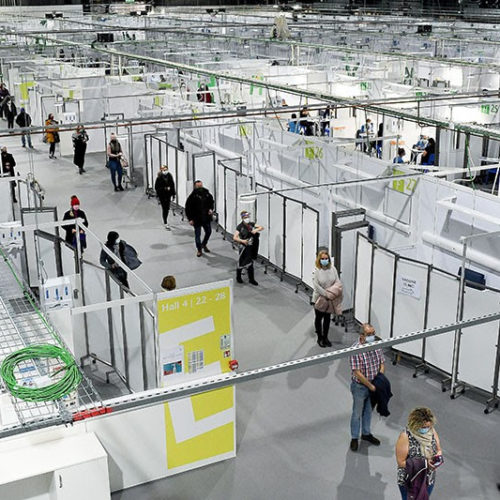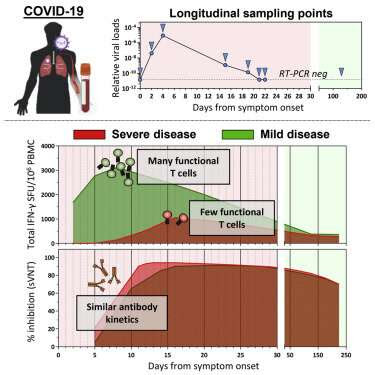TEXAS A&M UNIVERSITY A federally approved heart medication shows significant effectiveness in interfering with SARS-CoV-2 entry into the human cell host, according to a new study by a research team from Texas A&M University and The University of Texas Medical Branch (UTMB). The medication bepridil, which goes by the trade name Vascor, is currently approved by the...
Tag: <span>SARS-CoV-2</span>
Smell and taste loss symptoms associated with robust SARS-CoV-2 antibody response in new study
By Dr. Liji Thomas, MD Feb 9 2021 Even as the coronavirus disease 20-19 (COVID-19) pandemic continues to spread, much remains unclear regarding its immunological and clinical features, as well as its pathogenesis. Among these questions, one which has attracted a great deal of controversy is the observed rapid waning of antibodies within a few months of...
Antibodies to common cold coronaviruses do not protect against SARS-CoV-2
by Perelman School of Medicine at the University of Pennsylvania Novel Coronavirus SARS-CoV-2 Transmission electron micrograph of SARS-CoV-2 virus particles, isolated from a patient. Image captured and color-enhanced at the NIAID Integrated Research Facility (IRF) in Fort Detrick, Maryland. Credit: National Institute of Allergy and Infectious Diseases, NIH Past exposure to seasonal coronaviruses (CoVs), which cause the...
Viral load the main driver of SARS-CoV-2 transmission
By Sally Robertson, B.Sc .Feb 3 2021 A study conducted by researchers in the UK and Spain suggests that viral load is the main determinant of transmission risk in cases of severe acute respiratory syndrome coronavirus 2 (SARS-CoV-2) infection. The SARS-CoV-2 virus is the agent responsible for the ongoing coronavirus disease 2019 (COVID-19) pandemic that continues to threaten global public...
Previous SARS-CoV-2 infection may negate need for two vaccine doses
By Sally Robertson, B.Sc. Feb 2 2021 Researchers in the United States have shown that two doses of vaccine may not be necessary to protect against coronavirus disease 2019 (COVID-19) among people who have already been infected with the causative agent severe acute respiratory syndrome coronavirus 2 (SARS-CoV-2). The study of more than 100 people found...
Retrained generic antibodies can recognize SARS-CoV-2
by Brian Flood, University of Illinois at Chicago Double-faced peptide-based boosters are computationally designed to allow recognition of SARS-CoV-2 (grey, schematic) by Hepatitis B antibodies. One booster face made of ACE2-mimic peptides (red) can bind to the receptor binding domain of SARS-CoV-2 (blue). The other booster face composed of a Hepatitis B core-antigen (orange) can target...
How to redesign COVID vaccines so they protect against variants
Ewen Callaway & Heidi Ledford People await coronavirus vaccines at a hospital in Glasgow, UK.Credit: Jeff J. Mitchell/Getty As evidence grows that new variants of the SARS-CoV-2 coronavirus can evade immunity produced by vaccines or previous infections, scientists are exploring the idea of redesigning the vaccines currently being rolled out worldwide. Researchers are still debating whether...
Early functional SARS-CoV-2-specific T cell response may prevent severe infection
by Duke-NUS Medical School Graphical Abstract. Cell Reports (2021). DOI: 10.1016/j.celrep.2021.108728 Antibodies and T cells are components of the human immune system that directly act against viral infections and eliminate infected cells. A new study by scientists from Duke-NUS Medical School, provides evidence that an early presence of SARS-CoV-2-specific T cells in COVID-19 is likely to prevent severe...
Moderna vaccine fully neutralizes new SARS-CoV-2 variants, study shows
By Sally Robertson, B.Sc. Jan 26 2021 Researchers in the United States have conducted a study showing that Moderna’s mRNA-1273 vaccine neutralizes all circulating variants of severe acute respiratory syndrome coronavirus 2 (SARS-CoV-2) tested to date. The novel SARS-CoV-2 virus is the agent responsible for the coronavirus disease 2019 (COVID-19) pandemic that has now caused...
How vitamins, steroids and potential antivirals might affect SARS-CoV-2
Evidence is emerging that vitamin D – and possibly vitamins K and A – might help combat COVID-19. A new study from the University of Bristol published in the journal of the German Chemical Society Angewandte Chemie has shown how they – and other antiviral drugs – might work. The research indicates that these dietary supplements and...

